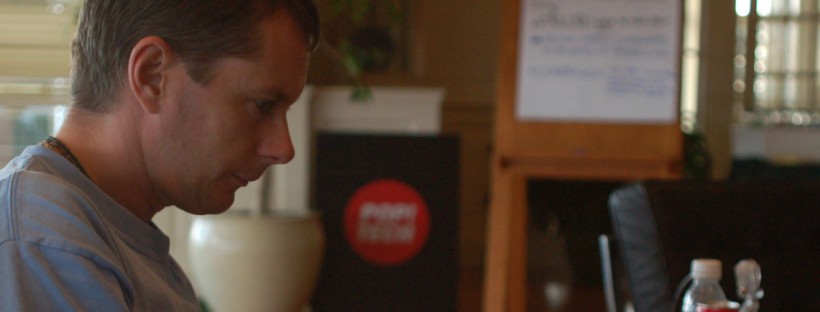
Dear fellas. I can’t believe how fast things move on the outside. I saw an automobile once when I was a kid, but now they’re everywhere. The world went and got itself in a big damn hurry
Brooks – quoted in the Shawshank Redemption
Today everyone seems to be in such a rush. From the time it takes to fly across the Atlantic to the time it takes Google to pull together your search results, speed is everything. Products are increasingly rushed to market, investors are increasingly impatient for exit and the social innovation community – that’s us – are increasingly impatient for scale. We have innovation accelerators left, right and centre and if we fail, well, we need to do that fast as well. When did we get in such a big hurry?
When I speak at conferences I often highlight the disconnect between funding cycles and the time it takes for a technology solution to firstly get a little traction, and then get to some kind of scale (depending on your definition of scale). Typically, how long does it take an innovation to take hold? One year? Two years? Three years? Five years? If we’re honest we don’t know. All we do know is that we usually lose patience (or interest) after a couple of years or so.
I often speak of my own experience with FrontlineSMS, which took about three years to really get going, and – if I’d taken funding and committed to deadlines and deliverables early on – how it would likely have not made it that long. As a product, maybe it just needed three years to bed in, to take hold in the imagination of its users, for news to filter down. If that’s the case then speeding up the process through an accelerator of some kind would have been counterproductive, and perhaps also lead to an early demise. Sometimes things just take time.
It begs the question: How many potentially great products have died prematurely because they weren’t given the time? Or because they were rushed? What proportion of projects do accelerators kill compared to those they genuinely accelerate?
As with many things in the social innovation and international development sectors (including innovation challenges), we don’t have the evidence either way. Just as small is often cited as beautiful, perhaps we need to recognise that sometimes slow might be sensible?

Accelerators almost certainly have their place as one of a number of tools and approaches, but we seem to be painting everything with the same brush. Acceleration might not be best for everyone and everything. Maybe speed only really matters if:
- You’ve quit your day job and need to start earning money fast
- You’ve banked some money to prove your idea – and the clock is ticking
- You’re working to some arbitrary deadline – a competition closing date, or a school term, or a funding deadline
- You’re working in the midst of an unfolding crisis and your solution was needed yesterday
- You’re worried that a ‘competitor’ is going to beat you to market
- You’re impatient
In the social innovation and international development worlds we seem to have fallen into our fair share of self-made traps. Assuming scale is everything is one of them. So is believing that open source is best for everything – without question. And that innovation challenges hold the key to unlocking all our great ideas.
Maybe questioning why we’re always in such a damn hurry should be another.


One thought on “Time for a ‘slow innovation’ movement?”
Comments are closed.